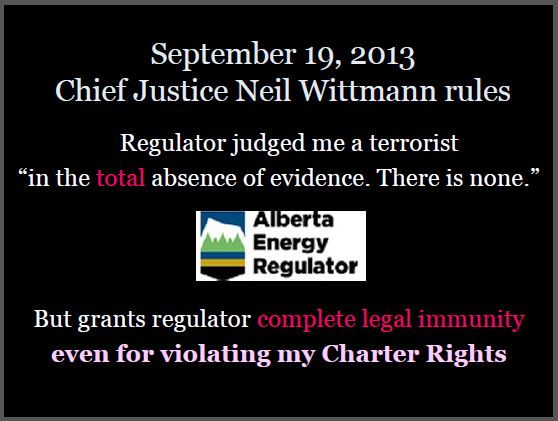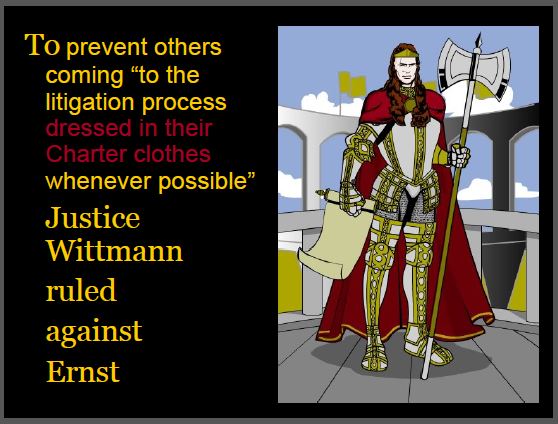BREAKING: Montreal bylaw restricting protests ruled unconstitutional
Quebec Superior Court judge invalidates key sections of bylaw P6
by Ethan Cox, June 22, 2016, ricochet media
Since 2012’s student strike, Montreal police have been using a bylaw called P6 to shut down peaceful protests, mass arrest participants, and hand them hefty fines. Critics have long argued that the bylaw was unconstitutional, and today a Quebec Superior Court judge agreed with those critics in a landmark ruling striking down controversial provisions of the bylaw. The judgement finally closes the book on a dark and embarrassing chapter of Quebec history.
Bylaw P6 has been on the books for years, but was amended in 2012 by the Tremblay administration (the same administration since found to have been engaged in widespread corruption) to mirror a provincial law passed at the height of the 2012 strike. The 2012 additions to the bylaw required protests to seek prior approval from police, and barred participants in protests from wearing masks.
The provincial law was repealed in late 2012 by the new PQ government, which campaigned against its unconstitutionality, but the municipal equivalent remained in force and has been used repeatedly by police to preemptively declare certain protests illegal and arrest and ticket all participants. This tactic of “kettling” has already been ruled illegal by England’s High Court and an independent review of its use during the 2010 G20 summit in Toronto also found it to be illegal under Canadian law.
In February of 2015 a Montreal municipal court judge ruled that the application of the bylaw represented a “shocking” violation of the law and threw out a series of tickets issued under it. The city declined to appeal that ruling, and cancelled all outstanding tickets issued under the bylaw, but police continued to apply the bylaw to shut down protests. There was much debate over how definitive the ruling was due to the fact that it addressed misuse of the bylaw, rather than its contents, and was handed down by a lowly municipal court judge.
“I don’t think you could write a constitutional bylaw banning masks at protests.”
Today’s ruling is the culmination of a four year legal battle waged by Julien Villeneuve, also known as Anarchopanda, a CEGEP professor who has attended protests since 2012 in a large panda costume in hopes of reducing tensions and highlighting the absurdity of police repression of peaceful protesters. He has been repeatedly kettled and arrested for participation in peaceful protests and his large panda head was the type of face-covering made illegal by the bylaw.
[ 2012: Anarchopanda conteste le règlement antimasque
Julien Villeneuve alias Anarchopanda. Photo PC in LaPresse ]
“It’s a pretty good judgement,” Villeneuve told Ricochet. “On masks it’s amazing, that’s what we wanted, the bylaw was crap. The court didn’t give the city a deadline to rewrite the bylaw, as they often do, and I think there’s a good reason for that. I don’t think you could write a constitutional bylaw banning masks at protests.”
His case was long considered the most significant test of the bylaw, and the Canadian Civil Liberties Association and union central CSN acted as intervenors, arguing that the bylaw provisions were unconstitutional.
“It’s not about me,” explained Villeneuve. “Many people went in the streets to defy P6 and were beaten, kettled, and ticketed. Many people have also contributed to fighting the bylaw by paying for the case through crowdfunding efforts, and of course our lawyers have done an excellent job. A lot of people were involved in this fight and it’s their victory today. It’s a cliché, but it’s true.”
In the judgement released this morning, Justice Chantal Masse ruled that the two most controversial provisions of the bylaw are null and void: article 2.1 which required police approval for protests and their route (as it relates to “spontaneous protests”), and article 3.2, which restricted the wearing of masks during protests.
Masse described article 3.2 as “unreasonable,” and “excessive,” concluding that it represented an “unjustified infringement on freedom of expression and assembly.”
In the case of article 2.1, the ruling found that spontaneous protests are protected under the constitution, although Masse ruled that an itinerary can be required for protests that are planned and advertised ahead of time. Consequently the article was ruled void in cases of spontaneous protests.
The judgement cited the Quebec and Canadian charters of rights and freedoms, and found that the contested provisions violated the constitution.
“On 2.1 the judgement is a bit weirder,” added Villeneuve. “Spontaneous protests are now legal, and that’s good, but the question is what is a spontaneous protest? The definition in this ruling is very narrow, requiring that a protest not have been advertised in advance and requiring some poorly defined urgency, and of course we disagree with that, and with the parts of 2.1 that were upheld.”
“We’re not thinking of appealing right now, we’ll wait and see how it plays out on the street. The ruling still gives the city and police certain powers, and we’ll see how they use them. But if they still use 2.1 in ways that are injurious to people’s right to protest there will be further challenges, and class action lawsuits. If the city appeals on 2.1 we’re ready to go to the court of appeal and make our case.”
Montreal’s current mayor, Denis Coderre, has been an outspoken advocate for the bylaw provisions ruled unconstitutional this morning, and the case represents an embarrassment for his administration, which has repeatedly argued that the provisions did not violate constitutional rights.
“I hope [this ruling] will have an impact on other cities, like Quebec, Saguenay and Gatineau, which have passed or are thinking about passing similar bylaws. It will certainly make it easier for people in the future to not have to spend as much time preparing a defence when they’re charged under this bylaw.” [Emphasis added]
[Refer also to:



Encana never argued in court to have Ernst’s case against the company thrown out.
Is Encana relying on the regulators and courts to increase costs and drag out the Ernst case long enough so that she dies before trial or runs out of money?
The Supreme Court of Canada will rule sometime in the next few months on whether or not Ernst can sue the AER for her valid charter claim against the “legally immune” regulator. The constitutional question in her appeal at the high court is:
2015 06 29: Notice of constitutional question(s) Ernst served on all Attorneys General in Canada (click to see distribution).
Is s. 43 of the Energy Resources Conservation Act, R.S.A. 2000, c. E-10, constitutionally inapplicable or inoperable to the extent that it bars a claim against the regulator for a breach of s. 2( b) of the Canadian Charter of Rights and Freedoms and an application for a remedy under s. 24( 1) of the Canadian Charter of Rights and Freedoms?

